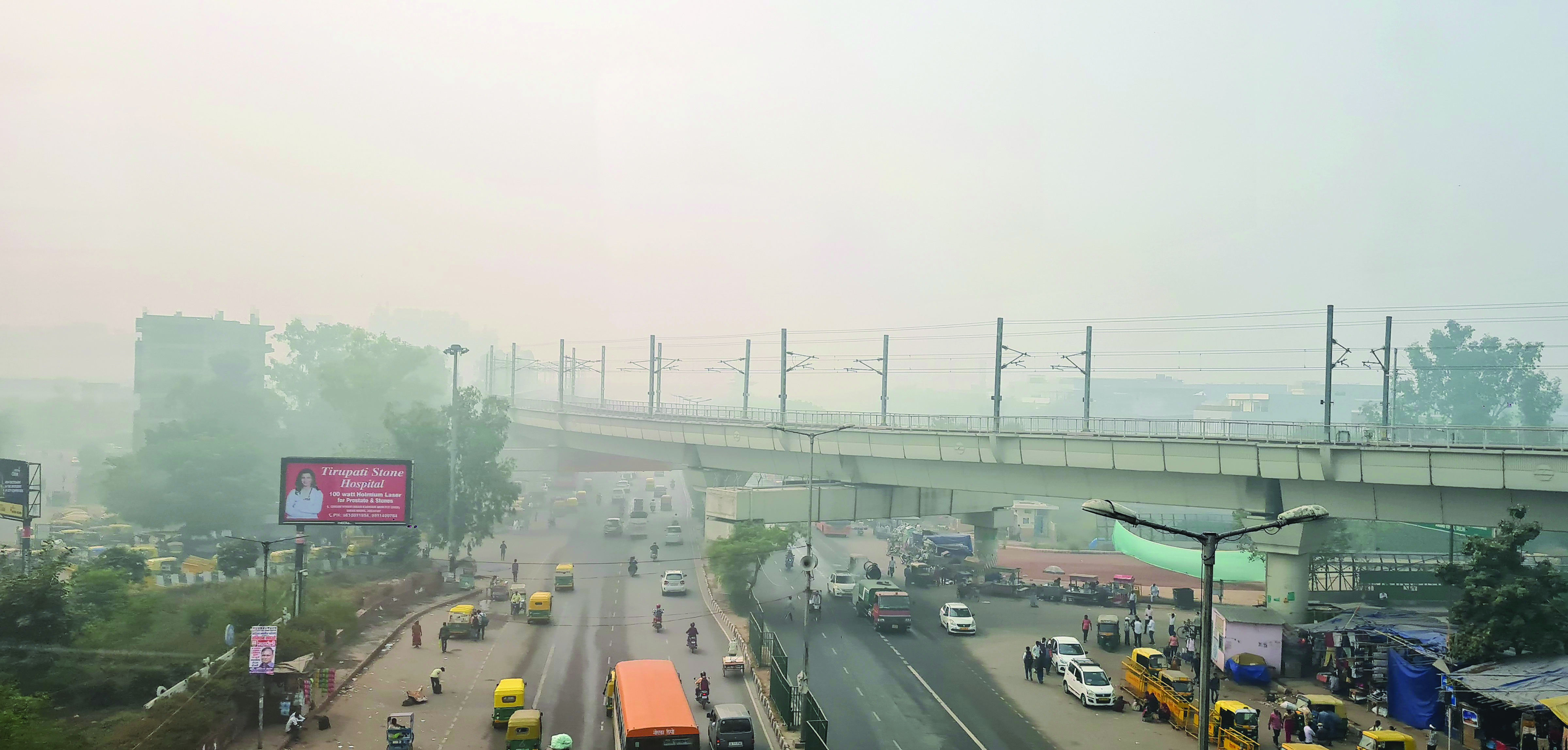Haze: Stricter curbs kick in to battle toxic air

New Delhi: Delhi’s air quality index entered the ‘severe plus’ category on Sunday with the maximum temperature settling at 31.5 degrees Celsius, a notch above the season’s average.
The 24-hour average Air Quality Index (AQI), recorded at 4 pm every day, worsened from 415 on Saturday to 454 on Sunday, prompting the Centre to implement all emergency measures mandated under the final Stage IV of its air pollution control plan called the Graded Response Action Plan (GRAP).
No relief is likely on Monday as the India Meteorological Department (IMD) has forecast no rainfall in the city which could improve the AQI by forcing down air pollutants.
According to the IMD, there will be shallow fog on Monday morning and the maximum and minimum temperatures are likely to settle around 31 and 15 degrees Celsius.
GRAP categorises actions into four stages: Stage I - ‘Poor’ (AQI 201-300); Stage II - ‘Very Poor’ (AQI 301-400); Stage III - ‘Severe’ (AQI 401-450); and Stage IV - ‘Severe Plus’
(AQI >450).
According to the New Delhi-based Indian Agricultural Research Institute (IARI), a total of 4,160 farm fires were reported from north India on Sunday -- the highest so far this season.
Punjab alone reported 3,230 incidents of stubble burning, the state’s highest in a day so far this season, according to Punjab Remote Sensing Centre data.
The Commission for Air Quality Management (CAQM), a statutory body responsible for formulating strategies to combat pollution in the region, asked Delhi and NCR states to order a ban on construction work related to linear public projects and allow 50 per cent of the staff in government and private offices to work from home.
Under Stage IV of GRAP, only CNG, electric and BS VI-compliant vehicles from other states are allowed to enter Delhi. Exemptions are granted only to those involved in essential services. All medium and heavy goods vehicles not engaged in essential services are also banned in the capital, according to the latest CAQM order.
Later in the day, the Delhi government’s Transport Department issued an order banning the entry of trucks, except those carrying essential items, into the national capital.
“As per directions provided under Stage IV of the revised GRAP and under Section 115 of the Motor Vehicles Act, 1988, it is hereby ordered... No Entry for Truck traffic into Delhi (Except for Trucks carrying essential commodities/providing essential services and all LNG/CNG/ Electric Trucks),” it said.
The order also banned the entry of light commercial vehicles registered outside Delhi, other than electric vehicles, CNG and BS VI-compliant vehicles, except those carrying essential commodities.
“Ban on plying of Delhi-registered diesel operated Medium Goods Vehicles (MGVs) and Heavy Goods Vehicles (HGV) in Delhi, except those carrying essential commodities/providing essential services.
“This direction shall not be applicable on vehicles carrying essential commodities i.e. raw vegetables, fruits, grains, milk, eggs or ice that is to be used as food items, and tankers carrying petroleum products,” it said.
According to officials, the Transport Department has deployed 18 teams to enforce the restrictions.
“We will deploy four to five more teams to enforce the fresh restrictions. The department has a total of 114 enforcement teams,” an official said.
Delhi’s air quality ranks among the worst in the world’s capital cities.
A report by the Energy Policy Institute at the University of Chicago (EPIC) in August said that air pollution is shortening lives by almost 12 years in Delhi.
The hazardous pollution levels have compelled many to forgo their morning walks, sports and other outdoor activities.
Parents are concerned as health experts say children breathe faster, taking in more pollutants.



